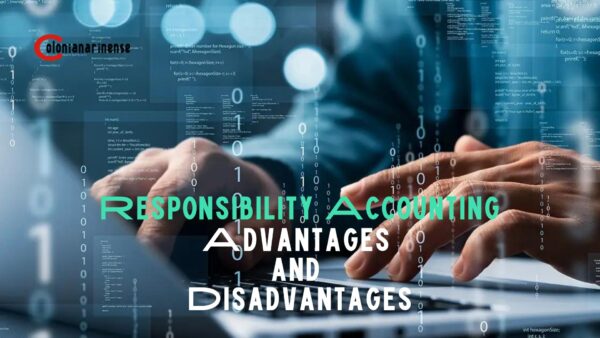Responsibility accounting, at its core, is simply about assigning specific roles and responsibilities to various teams or departments within a company. That’s really all there is to it. But at this point, you might be asking yourself, “What’s the point of implementing such a system, and why do so many businesses use it?” If that’s what you’re curious about, stick around. In this article, we’re going to dive into the potential advantages and drawbacks of responsibility accounting. Let’s skip the preamble and get straight to the details.
Advantages of Responsibility Accounting
Let’s start by looking at the positive side of responsibility accounting. These are some of the key benefits that drive businesses to adopt this approach.
A More Organized Business Structure
When a company introduces responsibility accounting, it’s almost like they’re restructuring their entire operation. It brings clarity to each team and department, making sure everyone knows exactly what they’re supposed to do. This leads to a more organized and efficient business, where everyone is aware of their duties and who’s accountable for what.
Boost in Overall Performance
With responsibilities clearly outlined, employees are more likely to perform at their best. When people know exactly what’s expected of them and understand their specific roles, they tend to take more ownership of their work. This heightened sense of accountability typically results in better performance across the company.
Improved Decision-Making
Responsibility accounting also enhances decision-making processes. Leaders and managers gain access to accurate, up-to-date information that helps them identify challenges and opportunities within their departments. With this kind of insight, it’s easier to allocate resources effectively, prioritize initiatives, and develop strategies that are aligned with the company’s goals.
Increased Motivation Among Employees
One of the less obvious benefits of responsibility accounting is the motivational boost it can provide to employees. When staff members are given specific responsibilities, they’re not just completing tasks—they’re taking ownership of them. This sense of responsibility often leads to higher levels of engagement and productivity because employees feel more connected to the overall success of the business.
Better Cost Control and Planning
Responsibility accounting gives businesses detailed insights into their financials. By understanding exactly where money is being spent and how resources are being allocated, companies can make more informed decisions about budgets, cost management, and future investments. This level of financial control helps businesses stay on track and avoid unnecessary expenses.
Streamlined Reporting
Another key benefit is that responsibility accounting simplifies the reporting process. This system focuses on relevant information and cuts out anything that isn’t directly within an individual or department’s control. As a result, reports become more concise, easier to understand, and faster to generate. This allows managers to make informed decisions more quickly, without getting bogged down by excessive data.
Disadvantages of Responsibility Accounting
Of course, like any system, responsibility accounting isn’t without its challenges. Let’s take a look at some of the potential downsides.
The Risk of Blame-Shift
One of the main pitfalls of responsibility accounting is that it can sometimes lead to a blame game. When things go wrong, individuals or departments may be unfairly blamed for issues that were beyond their control. This can create frustration among employees and negatively impact morale, as people may feel they’re being held accountable for factors outside their responsibilities.
Narrow Focus on Individual Tasks
While clearly defined roles can help streamline operations, they can also cause departments to become overly focused on their own tasks. This tunnel vision can make it difficult for teams to collaborate effectively, which can ultimately hurt the overall performance of the company.
Resistance to Change
The business environment is constantly evolving, and companies need to be flexible to stay competitive. However, responsibility accounting can sometimes make businesses too rigid. If employees are overly focused on their predefined roles, it may be harder for the company to adapt to new challenges or seize emerging opportunities.
Time and Cost-Intensive
Implementing and maintaining a responsibility accounting system can be time-consuming and expensive. For smaller businesses with limited resources, the cost of setting up this system—along with the time required to generate and analyze detailed reports—can be significant. This is especially true if a company doesn’t have the infrastructure in place to efficiently track and manage performance data.
Conflicts Between Departments
Responsibility accounting can sometimes lead to conflicts between departments. When each team is focused on meeting its own goals, it may not always align with the broader objectives of the company. This can create friction between departments, which may require upper management to step in and resolve conflicts.
Overwhelming Amounts of Data
While responsibility accounting provides valuable insights, it can also produce an overwhelming amount of information. Not all of this data will be useful, and someone has to spend time filtering out what’s important. This can slow down decision-making, as managers need to sift through the reports to find the most relevant information.
Conclusion
So there you have it. By now, you should have a solid understanding of why so many businesses choose to adopt responsibility accounting, as well as some of the reasons why others may decide to avoid it. Ultimately, responsibility accounting can offer significant benefits by providing clear structure, improving performance, and enabling smarter decision-making. However, it also comes with challenges, such as potential blame-shifting, rigidity, and the cost of implementation. If you’re serious about learning more, take the time to dig deeper into the topic to fully understand how it could impact your business.



